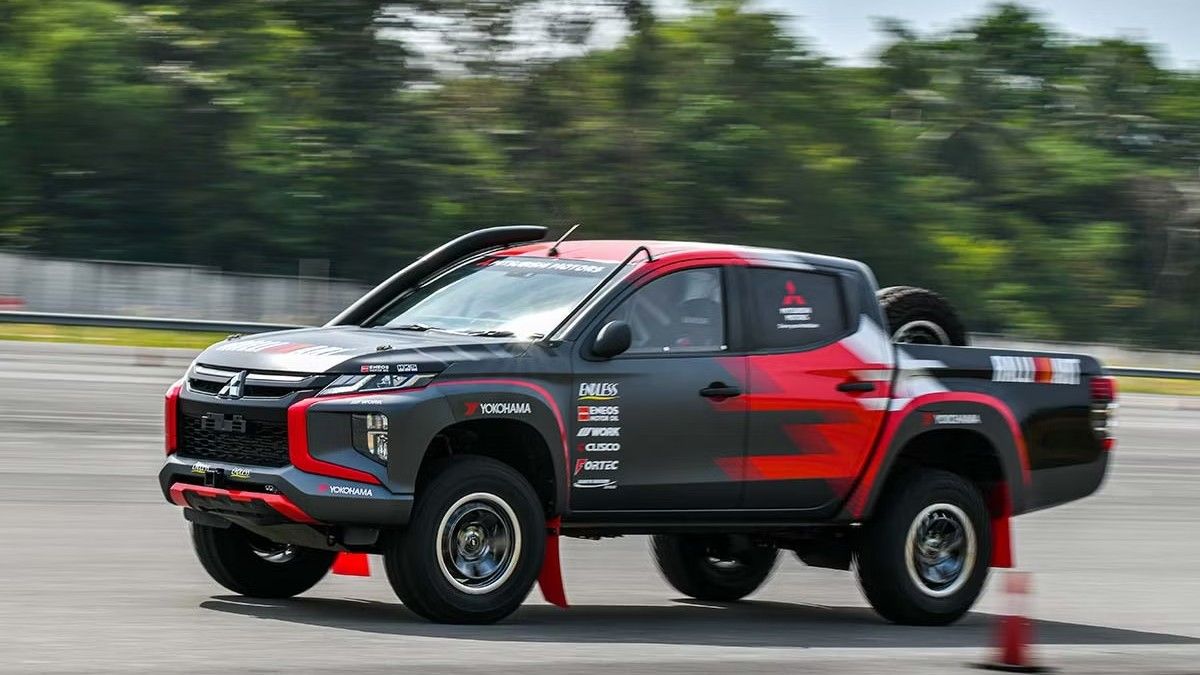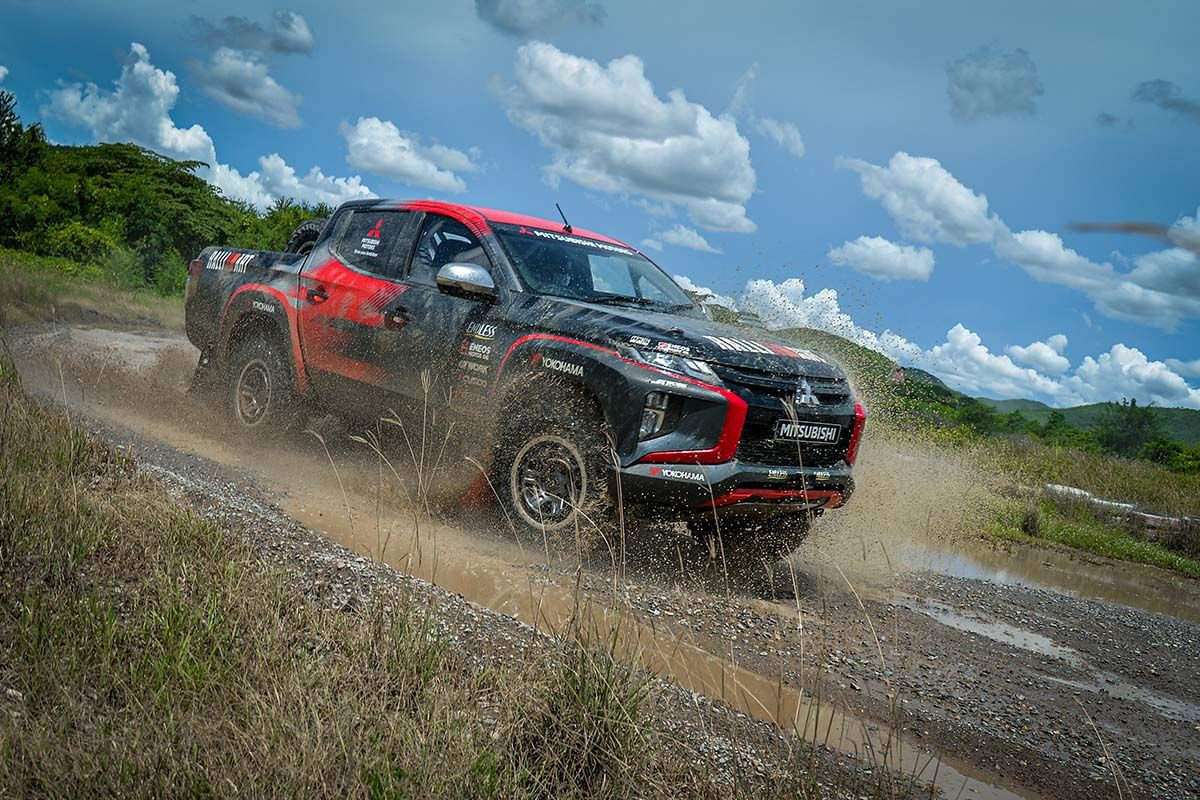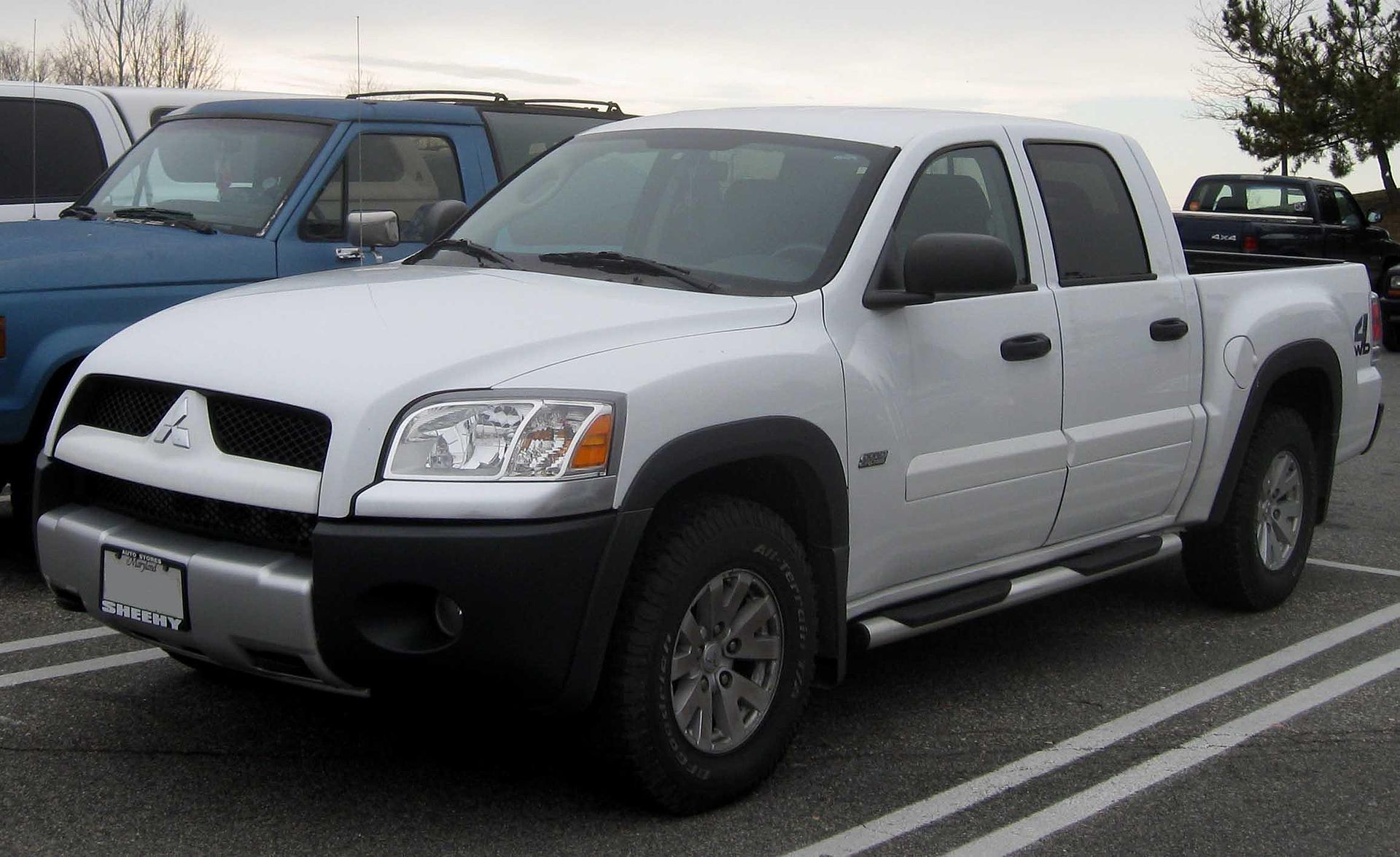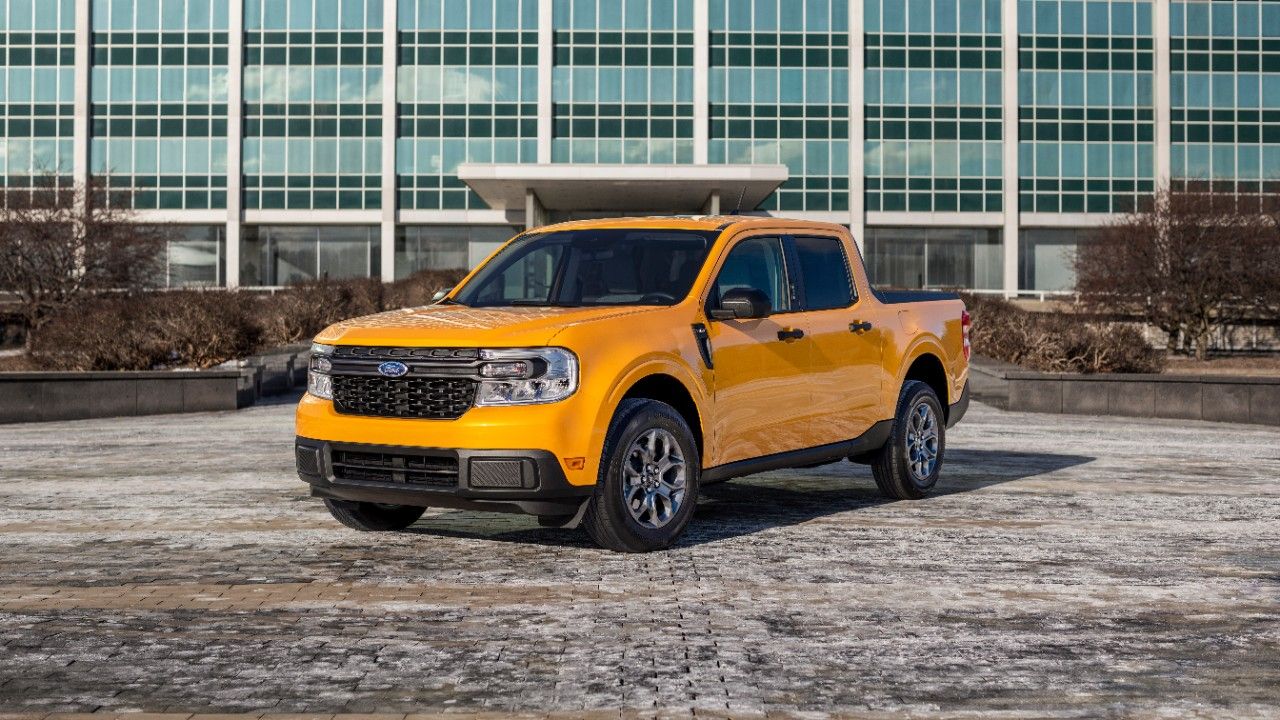In the United States, at least, Mitsubishi is somewhat akin to MySpace — once extremely relevant and popular and now something usually only associated with times gone by. Mitsubishi, like the first truly mainstream social media site, has slipped nearly completely out of the common consciousness and has been relegated to practical obscurity and obsolescence. The automaker has whittled down its lineup to its bare bones, and sales figures have not been anything to write home about.
Mitsubishi has seemingly appeared fine with this setup as it has done little to invigorate the brand’s standing in the U.S. market in recent years other than refreshing its Outlander midsized SUV and offering a plug-in hybrid version. But the brand, once revered by many enthusiasts, could finally be coming off the sidelines as Mitsubishi is mulling plans to once again provide an offering in the always red-hot pickup truck segment. Such a move could be vital as the automaker certainly needs to shake up its lineup to once again become relevant in the U.S. market.
Mitsubishi Mulls Pickup For The U.S.
Mitsubishi's Director for Product Planning in North America, Cason Grover, recently told The Drive the automaker is “certainly interested” in bringing a pickup back to U.S. shores. The company’s executive didn’t share hard details about the prospect, but it appears from his comments that Mitsubishi would be eyeing the midsized or compact pickup segments and forego challenging the Big Three’s full-sized offerings, the Ford F-150, Chevy Silverado, and Ram 1500. Grover said the Ford Maverick has shown there is a market for compact trucks, and it remains feasible that a new Mitsubishi truck could use the Outlander’s platform for a new pickup.
Though the automaker has success with its Triton pickup in other national markets, simply offering a U.S. version wouldn’t be feasible due to tariffs on imported pickups dubbed the “Chicken Tax.” This added financial burden on bringing the Triton to the States would be a surety as Mitsubishi doesn’t have any U.S.-based manufacturing.
Mitsubishi’s partnership with Nissan could potentially bear fruit for a potential pickup with the other Japanese automaker offering the recently revamped Frontier midsized truck. And the Frontier obviously has its appeal, as it outsold the Ford Ranger in 2022. But simply re-badging a Frontier does not appear to be a viable solution. Though the Frontier outsold the Ranger in 2022, Nissan’s midsize pickup still trails the top players in the segment, namely the Toyota Tacoma, Chevy Colorado, and Jeep Gladiator. So, simply offering a Mitsubishi version of the Frontier would likely cut into Nissan’s overall sales and wouldn’t do much to revitalize Mitsubishi. And Mitsubishi’s revival in is critical for the automaker’s future in the U.S. with its lackluster sales.
It’s Mission-Critical For Mitsubishi’s Potential Pickup Sells
Mitsubishi needs the sales shot in the arm its potential pickup could provide. While the automaker had a relatively successful sales year in 2022, its figures pale in comparison to other manufacturers. The brand’s most popular offering in 2022 was the Outlander SUV and its plug-in hybrid version with a combined sales total of nearly 43,000 units sold. Comparatively, Toyota sold just under 400,000 units of the Outlander’s rival, the RAV4 and its plug-in hybrid model. Meanwhile, Nissan moved over 56,000 Rogue models. The smaller version of the Outlander, the Outlander Sport, saw its sales reduced by over 50 percent from 2021 down to 16,373 units in 2022, while the Eclipse Cross crossover and subcompact sedan/hatch Mirage, combined, found their way to about 16,000 garages. In all, Mitsubishi sold 85,810 units in 2022, just 21 percent of what Toyota sold in RAV4’s alone.
A Mitsubishi Truck Could Enliven The Brand
Mitsubishi was once a well-respected brand among enthusiasts with offerings like the 3000 GT, Eclipse, and the Lancer Evo. But since those models have gone to the great scrapyard in the sky, the automaker now only offers models that are comparatively mundane, at least in the U.S. The Eclipse Cross, while taking its name from the brand’s revered sports car, is a boring compact crossover, and the Outlander is just about as ordinary, just bigger. The Mirage, which could be axed from Mitsubishi’s lineup relatively soon after it was announced the model will no longer be sold in Japan, is an extremely basic economy car.
With the Triton, which is profitable in international markets, Mitsubishi obviously has the know-how to create a successful truck. Additionally, the brand has a history in the non-full-sized truck segment in the U.S. The Mighty Max was offered in the States from model years 1986-1996, and was followed by the Mitsubishi Raider, which was based on the Dodge Dakota, from 2005-2009. Therefore, a Mitsubishi pickup could bring the brand back into prominence if done correctly, albeit for a different set of enthusiasts than those seeking sports cars. But another factor to consider is any potential truck from the brand will face some heavy competition.
The Pickup Segment Is Heating Up
Aside from the players already in the market, several automakers have been mulling new midsized or compact trucks for U.S. market that could face off against a potential Mitsubishi U.S. truck revival. GM, Volkswagen, and Nissan have all shared interest in offering smaller electric pickups in the U.S. within the last two months. The Ford Maverick and Hyundai Santa Cruz have showcased that there is a market for compact trucks, and if Mitsubishi goes that route, it, therefore might not be alone. To stand out from the crowd, or given the brand’s standing, stand out at all, Mitsubishi could approach its U.S.-pickup revival using the Outlander PHEV as a base, making it the first plug-in hybrid midsize/compact truck to hit the market. This would save the brand on expensive development costs, and a manufacturing partnership with Nissan for production in the U.S. could bypass tariffs. A plug-in hybrid seems like a viable option considering Mitsubishi, unlike the automotive segment at large, hasn’t made significant steps forward in fully electrifying its lineup. Alternatively, Mitsubishi could capitalize on truck buyers who still want ICE powertrains as other brands move towards electrification and instead use the standard Outlander as a base.
No matter what method Mitsubishi takes in again offering a pickup in the U.S. market, a truck could prove vital for the brand to remain viable. And if approached correctly, a Mitsubishi pickup could help to relaunch the brand in the U.S. amid lackluster sales and a limited lineup. In the meantime, time will tell if Mitsubishi follows up on its U.S. pickup ambitions. And who knows, maybe if a truck is successful, we could see Mitsubishi re-enter the sports car segment.





